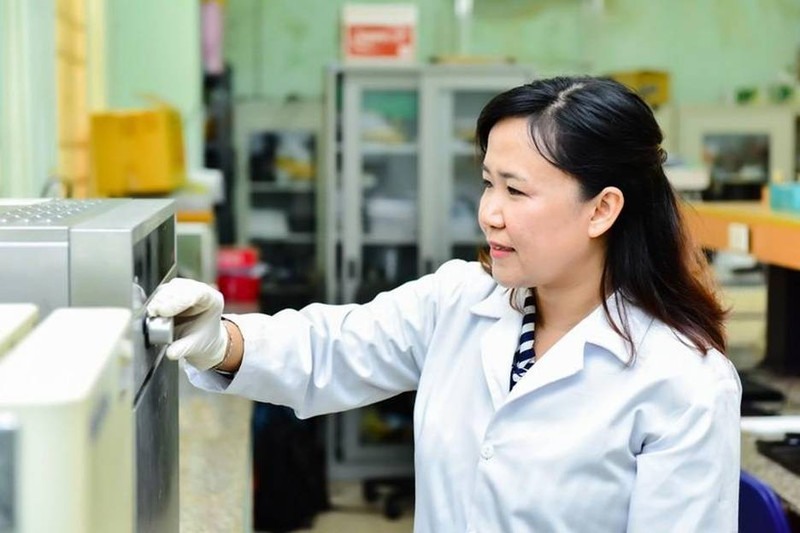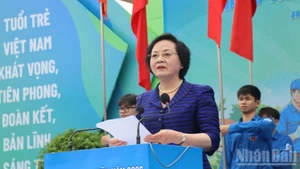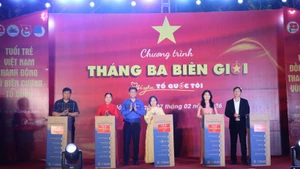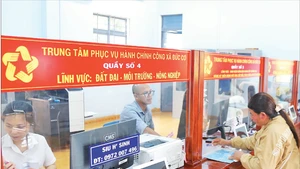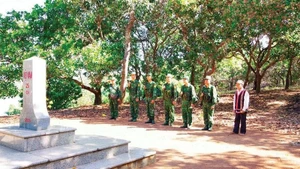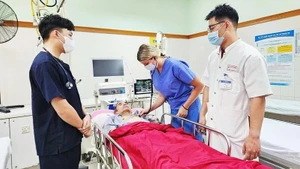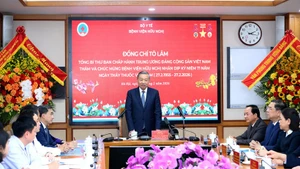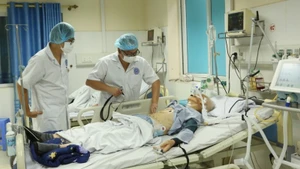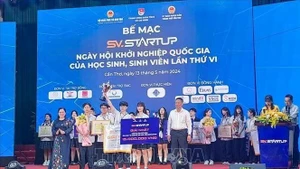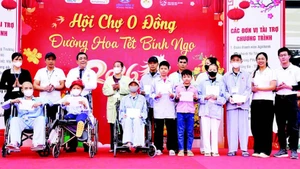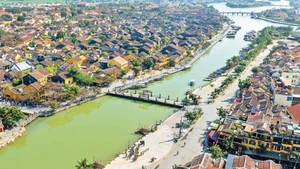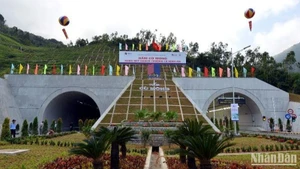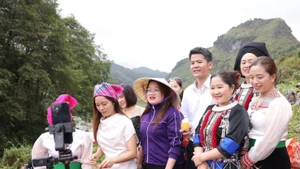Q: As a pioneering renewable energy researcher, what challenges have you encountered?
A: In 2013, after completing my training and returning home, renewable energy was still quite new in Viet Nam, so there was a lot of pressure. The field of renewable energy requires modern, high-cost equipment, from manufacturing raw materials to measurement and real-world application. For example, using platinum to make nanomaterials was very costly, and it took two months to buy and transport to Viet Nam by sea.
Another difficulty was that since this field was relatively new in Viet Nam, there was no established team of students, technicians, master’s-degree-holders or PhD researchers. I couldn’t conduct an entire research project on advanced technology by myself.
Q: How did you overcome these challenges?
A: I knew that if I didn’t kickstart everything, Viet Nam would fall behind. That’s why I decided to start from scratch, from seeking funding to training human resources from the ground up.
Luckily, I had many passionate students. I established a research group and started training human resources, building facilities, laboratories, equipment. For equipment that cannot be used in Viet Nam, I would turn to where I studied abroad to request support.
With access to opportunities and resources abroad, we can develop a capable and high-quality workforce. That’s why I decided to return to Viet Nam to train and inspire young Vietnamese generations in scientific research. Many students who participated in the renewable technology research project have had the opportunity to study, work and receive scholarships from countries such as Canada, Germany, South Korea and the US. After developing their skills, they continue to pass on their passion and knowledge to the next generation. This makes me very proud!
Q: What do you see as the solutions to some of most urgent environmental challenges today?
A: Viet Nam is heavily affected by climate change. Recently, we’ve faced drought, heat waves, saltwater intrusion in Mekong Delta provinces, floods, landslides, etc. The trend of industrialization and modernization have also increased energy consumption, but these resources are non-renewable, taking millions of years to generate under specific natural conditions. Given these challenges, we must pursue sustainable development and transition to renewable energy as soon as possible.
My research focuses on fuel cells, one of the renewable energy forms. When an ordinary battery runs out of fuel, it needs to be charged. For fuel cells do not require recharging. Just filling the fuel into the two electrodes will generate a continuous electric current and create a clean water stream for living and production. However, the obstacle to this technology is its high cost. My research aims to reduce the cost, increase the durability, and allow this to be manufactured right in Viet Nam without needing to import or transfer technology from other countries. This will open up opportunities and practical benefits for the widespread use of fuel cells, replacing fossil fuels and reducing global warming due to greenhouse gas emissions, while ensuring energy security.
Q: What advice do you have for young Vietnamese female scientists in particular?
A: Receiving prestigious awards has given me a greater sense of responsibility to stay focused on the mission of scientific research and training young generations. Young Vietnamese people have many good qualities: they are intelligent, hardworking and aspire to progress. I always tell them that with enough passion and enthusiasm, your potential becomes limitless, allowing you to surpass your own expectations.
Women in scientific research face more pressure, from work to being a wife and mother. Therefore, I hope that there will be many policies to promote and support scientific research among women. There need to be more funds to encourage and motivate women. I believe that when given the opportunity, female scientists will make many valuable contributions to society.
Women who are passionate about science, be bold! Turn that pressure into motivation to assert your place in the world.
Q: How do you balance work and family?
A: I’m fortunate to have received great support from my family so that I can devote my time to science. My father is passionate about technology and always wanted his daughter to pursue this field to contribute to society. My husband was my university classmate, and we studied abroad together. He gives me a lot of technical advice and has always encouraged and supported me behind the scenes with family matters so I can have time for research.
Sometimes I feel guilty for not having much family time. However, if sacrificing family time can be good for society … that will benefit my children later on and I want my children to also become useful individuals that contribute to society in the future.”
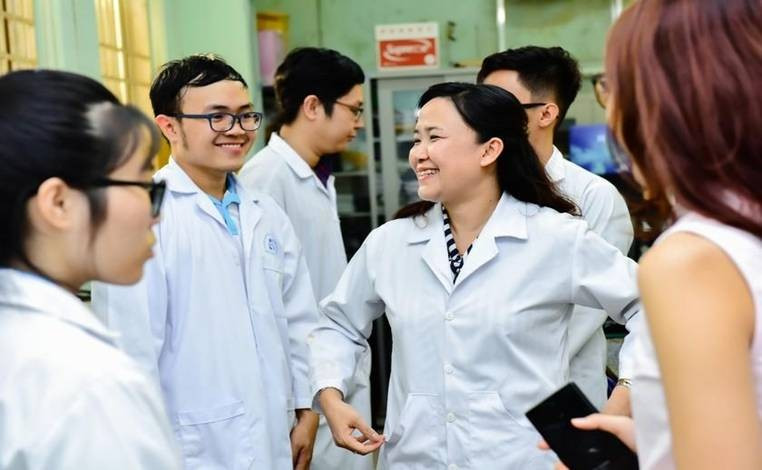
Associate Professor Ho Thanh Van has trained and shaped many passionate students.
